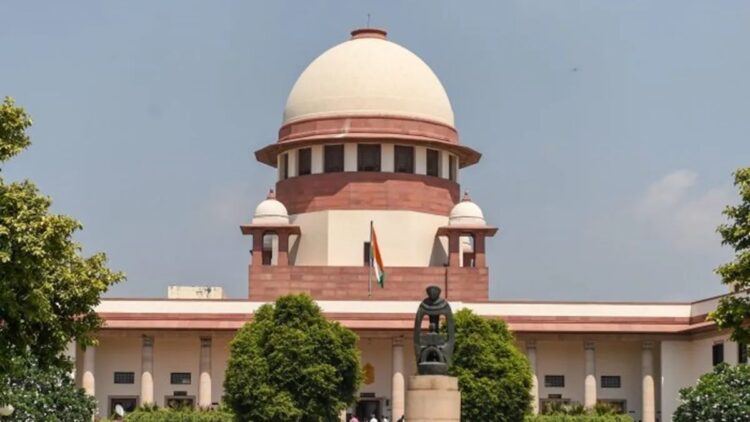Supreme Court
New Delhi: The hearing will begin in the Supreme Court today on the petitions challenging the Waqf (Amendment) Act by passing the Parliament amid opposition from opposition parties. A bench of three judges led by Chief Justice Sanjeev Khanna will hear the case. Around 73 petitions have been filed against the Waqf Act. Many people have filed petitions, including All India Majlis-e-Ittehadul Muslimeen (AIMIM) chief Owaisi, Association for the Protection of Civil Rights, Arshad Madani. The Supreme Court bench has so far listed 10 petitions. Many new petitions on this issue have also been filed in the apex court which are to be listed.
In this case, the Central Government had filed a cavity in the Supreme Court and requested to hear the case before passing any order. In fact, the covet is filed by a party in the High Court and the Supreme Court to ensure that no order is passed without listening to it. The Kendra government recently notified the Waqf (Amendment) Act, 2025. The All India Muslim Personal Law Board (AIMPLB), Jamiat Ulema-e-Hind, Dravida Munnetra Kazhagam (DMK), Congress MPs Imran Pratapgarhi and Mohammad Javed are other prominent petitioners.
Jamiat Ulema-e-Hind filed a petition on 7 April
On 7 April, a bench headed by Chief Justice assured Senior Advocate Kapil Sibal, appearing for Jamiat Ulema-e-Hind, to consider listing the petitions. AIMPLB filed a petition in the apex court on 6 April. The petition of Owaisi, filed through advocate Lajfir Ahmed, states that reducing the protection given to Waqf is discriminatory to Muslims and it is a violation of Article 14 and 15 of the Constitution.
On the other hand, the All India Muslim Personal Law Board has launched a new campaign against the Waqf law, which has been named Waqf Rescue Operations. The first phase of this campaign will last for 87 days. It has started from April 11 and will run till 7 July. It will also be signed by one crore people against the Waqf law. After this the next strategy will be decided.
Important things related to Waqf Amendment Bill
After independence, in 1950, there was a need to form an institution legally to maintain Waqf properties. In 1954, the Central Government enacted a law in the name of the Waqf Act and provided the Central Waqf Council in 1955, making changes in this law and started the creation of Waqf Board in every state. There are currently about 32 Waqf boards in the country. They regist and maintain Waqf properties. In some states, Waqf boards are different for Shia and Sunni Muslims. In this 1954 law, the Central Government has made changes through the Waqf Amendment Bill.
Waqf modification bill timeline
The Waqf (Amendment) Bill, 2024 was introduced in the Lok Sabha on August 8, 2024. The Waqf (Amendment) Bill was sent to the Joint Parliamentary Committee (JPC) on 8 August 2024, the Joint Parliamentary Committee report was submitted on 30 January 2025. The Waqf (Amendment) Bill was passed on 2 April 2025 in the Lok Sabha. The Waqf (Amendment) Bill was passed in Rajya Sabha on 3 April 2025.
Latest india news









